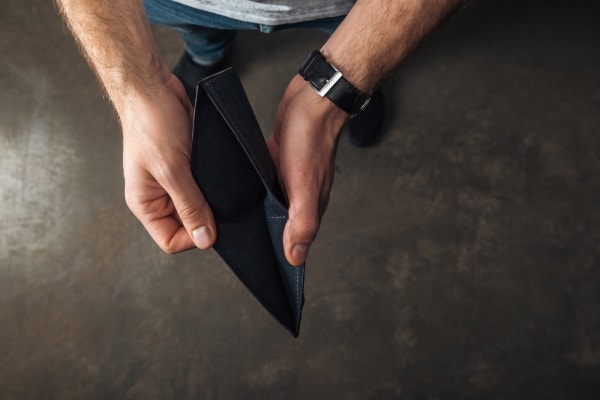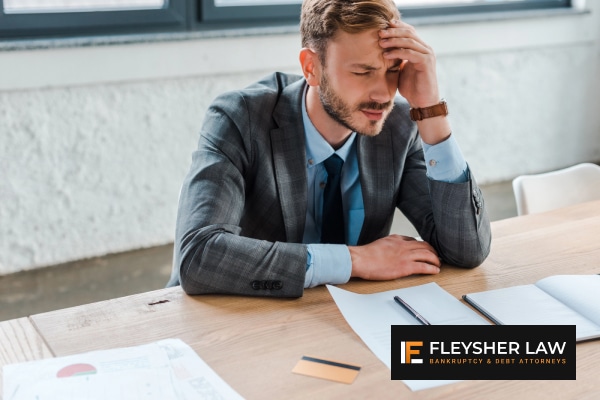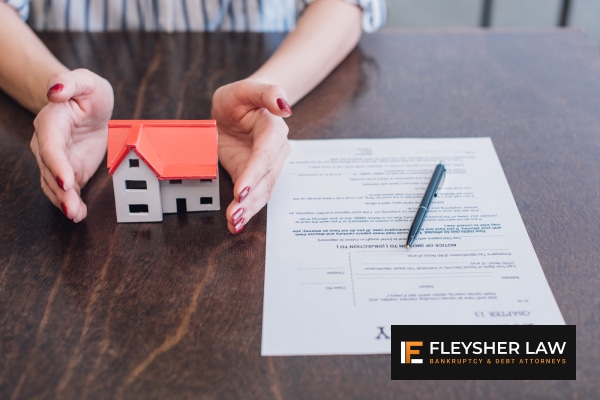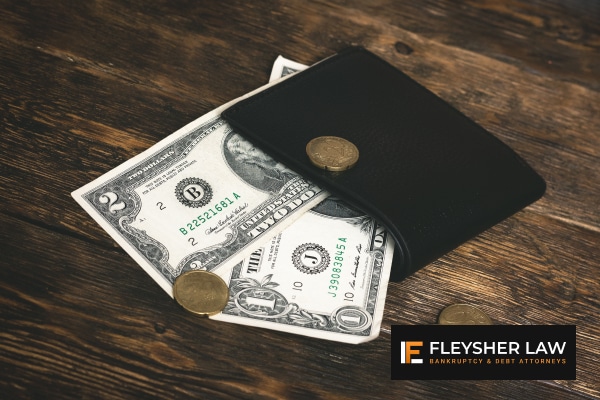This page was written, edited, reviewed & approved by Emil J. Fleysher following our comprehensive editorial guidelines. Emil J. Fleysher, the Founding Partner, has 15+ years of legal experience as a bankruptcy attorney. Our last modified date shows when this page was last reviewed.

Filing for bankruptcy in Florida with Florida Bankruptcy Exemptions can be overwhelming, but knowing the state's exemption rules makes it easier. Exemptions protect essential assets during Chapter 7 bankruptcy, including items like your house or car.
Florida's exemptions differ from federal exemptions, so it's important to understand state laws. A Florida bankruptcy lawyer can help you through this. They ensure your rights are safe during the filing process. The homestead exemption in Florida is especially important, as it offers strong protection for your home.
At Fleysher Law, we simplify the bankruptcy process. We help you use Florida's exemptions to protect key assets like your home and car. Our team works to secure your rights and guides you through each step, offering clear support throughout.
Bankruptcy exemptions are legal protections. They allow individuals to keep certain assets during the bankruptcy process.
In a Chapter 7 bankruptcy, federal bankruptcy exemptions or state exemptions can be used to safeguard property. That means you are keeping your property from being sold to pay creditors.
Florida follows its own set of bankruptcy exemptions rather than federal ones. These exemptions cover homes, personal property, and retirement accounts.

Florida's bankruptcy exemptions are vital for people filing Chapter 7 bankruptcy. These rules let individuals protect key assets, like their home, car, and personal belongings, from being sold to pay off debts. The homestead exemption is one of the most significant protections. It allows homeowners to keep their primary residence.
Using these exemptions, people can safeguard what they need to move forward after filing bankruptcy themselves. This ensures that even while resolving debts, they don't lose crucial possessions, making the bankruptcy process easier to handle and more manageable.
The homestead exemption is one of Florida law's most significant bankruptcy protections. It allows individuals filing for bankruptcy to safeguard their primary home, helping ensure that people can keep their homes even in the face of financial difficulties.
Florida's homestead exemption does not have a maximum dollar limit for the value of the home, provided the property meets eligibility requirements. This exemption can be crucial for those filing for Chapter 7 bankruptcy, as it protects equity in the home from being used to pay creditors.
The homestead exemption in Florida shields your primary home from being seized to pay off creditors during bankruptcy. This exemption helps ensure that you don't lose your home even if you face financial issues.
Under Chapter 7 bankruptcy, this protection is particularly important. It prevents the forced sale of your home to settle debts, provided the property qualifies. The exemption also covers any equity you have in your home, allowing you to keep some of your property through bankruptcy proceedings.
To claim Florida's homestead exemption, your property must be your primary house. You must have owned the home for at least 1,215 days before filing for bankruptcy.
This protects your property up to an unlimited amount of equity as long as it's located within a half-acre in a city or 160 acres in a rural area. Meeting these requirements ensures that your home can be protected from creditors. The homestead exemption plays a vital role in safeguarding your house during bankruptcy.
Although Florida bankruptcy exemptions provide broad protection, there are certain limits and exceptions. The exemption only applies to your house, and properties larger than 160 acres in rural areas or half an acre in cities may not be fully protected.
The homestead exemption won't cover secured debts like mortgages or tax liens. Knowing these limitations is crucial in managing expectations when filing for bankruptcy.
A knowledgeable and skilled bankruptcy attorney can guide you through these rules. We ensure you take full advantage of your bankruptcy estate and the available protections.

Florida's bankruptcy exemptions include protections for personal property. This means those filing for bankruptcy can keep certain belongings, even during a Chapter 7 bankruptcy.
Florida law exempts up to $1,000 of personal property, including household items, furniture, and clothing. If you do not use the homestead exemption, the exemption increases to $4,000.
Personal property exemptions help safeguard essentials during bankruptcy proceedings. In some cases, more federal exemptions protect property and may also apply alongside Florida exemptions.
Florida law provides a wildcard exemption for personal property when the homestead exemption is not claimed. This wildcard exemption allows individuals to protect up to $4,000 of additional personal assets, including household items, cash, and other belongings not covered under specific exemptions.
The wildcard exemption gives flexibility in protecting more assets during a bankruptcy filing. Work with a bankruptcy attorney to ensure you maximize the use of this exemption. Protect your personal property and secure a better financial future.
Florida allows individuals to protect a part of the value of their motor vehicle during bankruptcy. Under the Florida motor vehicle exemption, up to $1,000 of a vehicle's equity can be exempted.
If the vehicle is worth more than this amount, the excess value may be subject to liquidation in a Chapter 7 bankruptcy case. But, if you don't use the homestead exemption, you can apply the wildcard exemption to cover more value for your car.
Properly applying exemptions can help you keep your vehicle. A skilled attorney can ensure you take full advantage of the available protections.

Florida law provides several extra exemptions that can help protect various forms of income and benefits.
For a workers compensation for example, unemployment compensation benefits are fully exempt from creditors. Florida exemptions protect public employee retirement benefits, tax-exempt retirement accounts, and benefits from fraternal benefit societies.
These exemptions ensure that people filing for bankruptcy can access essential resources. Understanding which benefits are protected is crucial for anyone considering bankruptcy in Florida.
Florida protects various forms of income and benefits from creditors during bankruptcy:
Florida allows certain tools of trade to be exempt from bankruptcy. These are items essential to your occupation, such as tools, instruments, or equipment used in your profession. The exemption applies to personal property, making it possible to keep essential items necessary for work.
This protection helps individuals continue earning an income even after filing for bankruptcy. Under Florida law, the value of tools exempted by bankruptcy exemption is capped at a specific amount, ensuring you can still practice your trade while managing debts.
Exemptions protect your assets in bankruptcy. In Florida, both state and federal exemptions help you keep essential items. These include your home, car, and personal property. Bankruptcy exemptions in Florida ensure you keep what you need.
By using exemptions wisely, bankruptcy becomes less overwhelming. This protection lets you hold onto basics, helping you regain financial stability. Applying exemptions shields more of your property, making the process easier.
Maximizing your Florida exemptions can impact the outcome of your bankruptcy filing. A bankruptcy lawyer can review your case. They can determine which federal and Florida bankruptcy exemptions protect the most assets.
Choosing between federal and state bankruptcy exemptions requires careful thought about your assets. Federal tax exemptions and personal property exemptions can offer extra protection. This helps you keep important items and reduces financial loss.

Maximizing your exemptions can increase financial protection during bankruptcy. Choose the right combination of federal and Florida bankruptcy exemptions to safeguard assets. You can safeguard your home, personal property, and even retirement accounts.
A lawyer helps ensure your bankruptcy filing makes the most of these protections. Hiring an attorney minimizes the impact bankruptcy petition has on your financial recovery. We handle both Chapter 13 and Chapter 7 cases, always putting our clients first.
At Fleysher Law, we help clients throughout the bankruptcy process. Our experienced team is committed to maximizing your exemptions under Florida law. We can secure the best possible outcome for your case.
Contact us for a free consultation to discuss how we can help with your bankruptcy case.

Emil specializes in consumer bankruptcy, debt settlement, and mortgage modification, offering a holistic approach to solving mortgage and debt problems. Emil listens to clients, understands their circumstances and goals, and helps them make the right choices by presenting all options and contingencies.
He is dedicated to helping South Floridians regain their financial freedom from overwhelming debt caused by high interest credit cards, bad mortgage loans, and uninsured medical expenses.
"*" indicates required fields

"*" indicates required fields